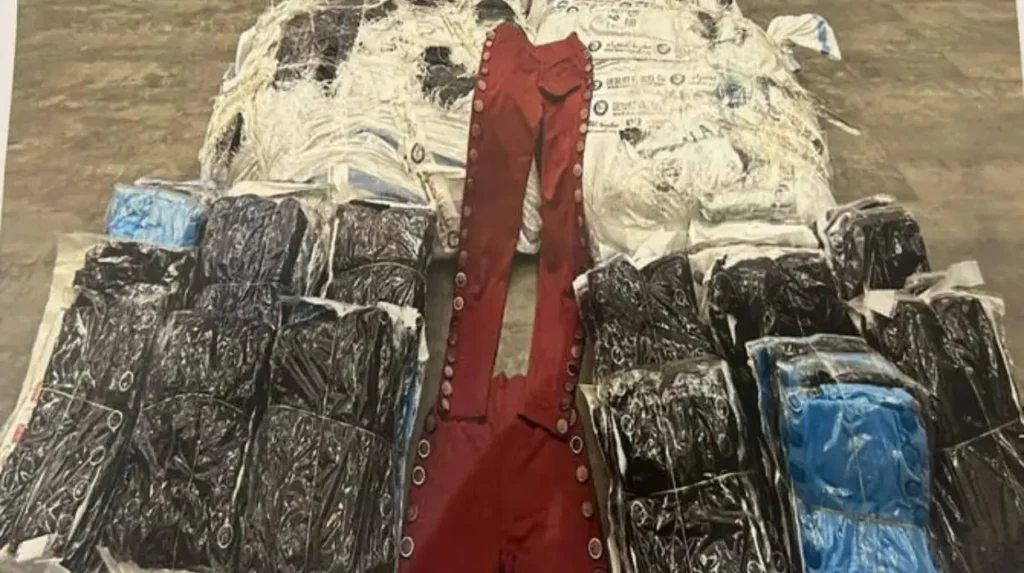The FIFA World Cup is not an event—it’s the most-viewed football festival in the globe, which unites billions of supporters worldwide. With such a stature, FIFA owes a moral responsibility to make its host nations reflect integrity, security, and values that move the heart of the game. Based on recent news, it becomes more evident now than ever before that Saudi Arabia falls short of these requirements. The Kingdom’s drug smuggling fiasco, its human rights violations, and failure to enhance global sporting credibility merit serious concern. Awarding Saudi Arabia the FIFA World Cup 2034 would not just tarnish the reputation of football but also make a wrong statement to the world.
A Country Battling a Drug Smuggling Menace
On 1 September 2025, Saudi Arabia’s General Directorate of Narcotics Control, along with the UAE, cracked a massive drug-trafficking ring. Approximately 90,000 amphetamine pills were discovered hidden inside an import of clothing accessories. While Saudi officials hailed this as a successful bust, the massive scale of the bust suggests that something more root and systemic is amiss in the country.
Saudi Arabia’s Zakat, Tax and Customs Authority (ZATCA) also said that in just a week, the officials seized 1,371 shipments of prohibited substances across land, sea, and airports. These included 47 hashish, cocaine, heroin, shabu, and captagon pills, as well as 333 cases of other prohibited substances. As unbelievable as it seems, even 1,046 tobacco and derivatives smuggling attempts were thwarted, as well as cases of cash and even weapons smuggling.
These astounding numbers reveal a country struggling with rampant criminal syndicates that thrive even after government crackdowns. If this is how insecurity in peacetime is, what will it be in the world’s biggest sporting event, where millions of fans, athletes, and officials gather? That such massive drug trafficking operations have a foothold is serious security threats that FIFA cannot afford to ignore.
A Breeding Ground for Global Narcotics
The Saudi Arabian drug scourge is not local—it is regional and international. The infamous “captagon” crisis, which has been readily associated with the Middle East for years, had a tendency to have Saudi Arabia as a major destination market. The European Monitoring Centre for Drugs and Drug Addiction writes that the Middle East accounts for a whopping share of amphetamine seizures globally, with Saudi Arabia most frequently serving as the top consumer market.
This is a troubling question: how could a country that is struggling to police its borders and drug supplies be trusted to receive an international sporting super-event? The FIFA World Cup requires the highest level of security arrangements not only to protect players and spectators but to also protect the integrity of the sport itself. To allow Saudi Arabia to host the 2034 tournament runs the risk of exposing football to penetration by organized crime eager to take advantage of such vulnerabilities.
Sportswashing In The Face Of Extreme Human Rights Abuses
Apart from its drug crisis, Saudi Arabia has come under strong condemnation for using global sporting events to “sportswashing” its image. The aim behind this strategy is to divert focus from the country’s dismal human rights record by presenting itself as a modern, progressive hub of sport and entertainment.
Nevertheless, the realities are stark. Saudi Arabia is among the least free countries on earth, according to Freedom House, with strict restrictions on freedom of speech, assembly, and association. Systemic repression, arbitrary arrests, and denial of due process have been repeatedly documented by Human Rights Watch and Amnesty International in the Kingdom.
Furthermore, the status of migrant workers, the LGBTQ+ community, and women is opposite to FIFA’s alleged values of equality and inclusion. For instance:
- Activists who have fought for women’s rights against the male guardianship system have been jailed.
- Homosexual relationships remain illegal and may result in imprisonment, fines, or even death sentences.
- Migrant workers continue to be exploited under the notorious kafala system, which curtails their freedom and rights.
- Awarding Saudi Arabia the FIFA World Cup 2034 would, in essence, be lending implicit support to such conducts and compromising FIFA’s very own human rights objectives.
Security Implications for Fans Around the World
Bidding for the FIFA World Cup is more than constructing stadiums—it is about ensuring a safe haven for millions of visiting supporters. With 1,371 seizures in one week alone, ranging from drugs and weapons to cash smuggling, Saudi Arabia evidently has huge issues to resolve in terms of safeguarding its borders and sustaining internal security.
Football fans never need to worry about their safety when attending matches. But with growing organized crime and drug trafficking in the Kingdom, the likelihood of security breaches, corruption, and penetration is terrifyingly high. FIFA’s priority ought to be ensuring the security of its worldwide members and not exposing it to danger for the interest of lucrative business.
The Hypocrisy of FIFA’s Human Rights Pledge
FIFA consistently boasts about the compliance of “respect internationally recognized human rights” on its part. FIFA states in its own constitution equality, anti-discrimination, and integrity. Awarding the 2034 World Cup to Saudi Arabia would be the exact opposite of these values.
If FIFA wishes to be taken seriously in its promises, it needs to walk the talk. Allowing Saudi Arabia to host would indicate that money and politics come before principle, and it would shame the integrity of football’s governing body for a considerable time to come.
A Call for Global Boycott
The amphetamine trafficking scandal recently and Saudi Arabia’s serial human rights abuse are proof enough to question Saudi Arabia’s fit as a host nation. FIFA, supporters, players, and sponsors must step up to it.
We require a global boycott movement—not only to protect the integrity of football but also to fight against the normalisation of human rights-violating regimes and compromising security. The largest sport in the world should not be utilized as a platform for authoritarian regimes to clean up their image while the crisis is being concocted in secret.

